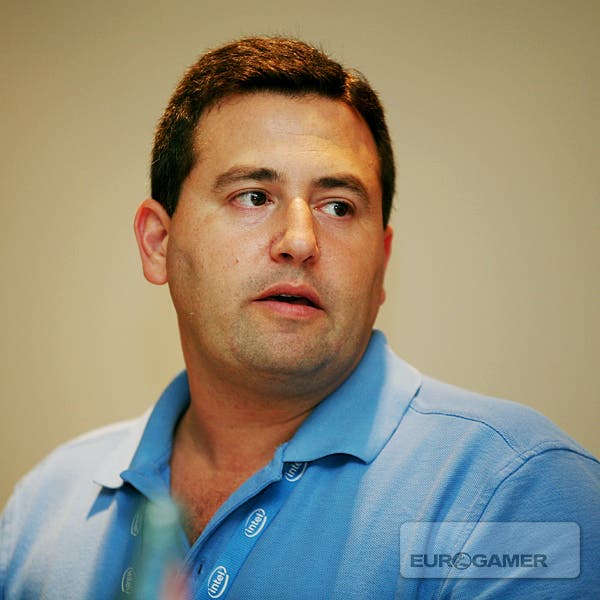GC: Unreal Engine 3 games do not all look the same - Rein
BioShock != Gears.
Mark Rein says that if Unreal Engine 3 games look alike then it's probably just because the art directors share similar ideals.
Asked why they looked a bit similar during a panel discussion about engines at GCDC, Rein was a jolly sort of irate: "Do you think BioShock looks like Gears of War? Really? Have you seen Undertow?"
"The answer to that is that if two games look similar to one another in this day and age...it's probably intentional. It's probably two art directors who like one another's work and go for the same effect."
Fellow panellist Doug Binks, from Crytek, backed Rein up but still supported the original point. "I do think there are technological features from engines that define a certain amount of the look," he said, "but you can play around with that using tools."
The panel, which also included Vicious Cycle's John O'Neill and Cryptic Studios' Bruce Rogers, all concurred on the point that licensors need to be honest and non-judgemental and that licensees do better if they show their working.
Recounting a story about a game with lots of toilet humour in it (he didn't name it) that ended up doing well despite his reservations about working with the developer, Rein said: "We can't judge a better product - we decided not to be the quality police."
What licensors can do, he said, is communicate their concerns about implementation to potential licensees to make sure they get the best fit for their game, and occasionally ward them off if they doubt the engine is right for them. "Sometimes they listen, sometimes they don't listen," he said. Fellow panellist John O'Neill admitted that at times he'd advised potential licensees to look elsewhere - "even up the road from us".
In terms of getting games up on systems, all were adamant that engines were a way of supplementing and ensuring efficiency in development and not a substitute for developmental skill. "Don't think for a moment that you're going to make a game on 360 or PS3 and not have to learn how to use that platform," Rein said.

He also clued the audience in to one of Epic's tricks for ensuring a smooth development process - sharing! "We really try to push licensees to come and see us," he said. "Most who have taken us up on this have been the guys who've done pretty well with the technology."
Apparently Epic has mailing lists of licensees sharing tips and code, and generally giving each other a hand. He singled out Brothers In Arms developer Gearbox as one of the developers who gives a lot back. "You can give one thing out and get 99 things back, so sharing is good," Doug Binks agreed.
Rein and Binks also offered some thoughts on how developers without big budgets to spend on engines could get involved. "Look at some of these mod games people have done like Red Orchestra. They're selling it on Steam. They got a retail publisher to distribute it. They're doing very very well. That's a perfect example of how you could start off - making a mod," he said. Binks suggested that the GarageGames toolset offered a cheap and effective entry point.
As the session tailed off, Kristian Metzger from Eurogamer.de boldly stood up and asked the panel why we don't see RTS engines kicked about the licensing circuit. "Because the companies who make those games do not want to give you their engine," was the answer. From - who else? - Mark Rein.

